MercoPress. South Atlantic News Agency
Tag: Federico Sturzenegger
-
Thursday, May 24th 2018 - 08:44 UTC
Dollar/Peso challenge: Argentina offers to swap one-month Lebacs for long term papers
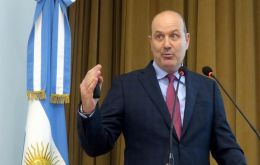
Argentina’s central bank moved on Wednesday to improve its debt profile by offering to swap some of its one-month Lebac securities for paper of longer duration, the bank said in a statement.
-
Tuesday, April 24th 2018 - 07:22 UTC
IMF forecasts Argentina will grow 2% this year because of the drought and fiscal shortcomings
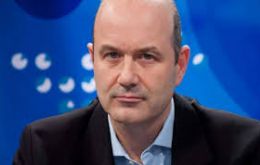
The International Monetary Fund’s (IMF) World Economic Outlook update for April 2018 has reduced its expectations of growth for Argentina this year, and its projected annual inflation rate largely exceeds the 15% goal set by president Mauricio the Macri administration in December 2017.
-
Tuesday, April 17th 2018 - 08:14 UTC
Argentina's inflation hard to beat: “inflation has to fall a lot in May”
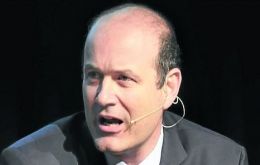
Argentina’s central bank would raise interest rates if inflation does not fall “a lot” beginning in May to a level consistent with its 2018 target for a 15% rise in consumer prices, central bank Governor Federico Sturzenegger said on Monday.
-
Thursday, March 8th 2018 - 09:35 UTC
Argentine central bank anticipates volatility in the money exchange market

Argentines will have to get used to the volatility of the money exchange rate, advised Central Bank president Federico Sturzenegger on Wednesday when the US dollar (a sacred reference for Argentines) reached a new historic high above the 20 Pesos. (Actually 20,69 for retail sales and 20,69 for wholesale operations at the end of trading).
-
Friday, December 29th 2017 - 09:32 UTC
Argentina increases inflation targets for 2018/19, closer to private estimates

Argentina changed its inflation target for 2018 to 15%, up from the central bank’s previous goal of 8-12%, Treasury Minister Nicolas Dujovne said on Thursday, raising expectations for interest rate cuts. The government will postpone by one year its goal of lowering inflation to 5%, pushing it back to 2020, Dujovne said.
-
Tuesday, August 1st 2017 - 07:06 UTC
Argentine Peso rises against the US dollar as Central Bank shows its muscle
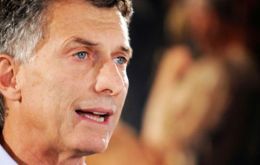
Argentina's Peso rose against the dollar on Monday for the first time in two weeks, after the central bank intervened in the foreign exchange markets on Friday to halt the currency's rapid decline to historic lows, when it reached 18 Pesos.
-
Wednesday, July 19th 2017 - 10:57 UTC
Argentina's central bank hikes interest rates to combat high inflation

Argentina's central bank hiked interest rates on its short-term securities on Tuesday in its monthly auction, the second such increase in the past three months as it seeks to soak up pesos and rein in stubbornly high inflation.
-
Monday, October 24th 2016 - 17:43 UTC
Billions pour in to buy Argentine bonds, “sign of growing investor confidence”

Argentina’s international currency reserves rose above the landmark US$40 billion for the first time in three and a half years last Friday, as a huge inflow of dollars from government-issued debt and some exports over the last few days caused some dramatic increases this week. The milestone, according to Central Bank chief Federico Sturzenegger, was “a sign of growing investor confidence in the country.”
-
Thursday, June 9th 2016 - 09:16 UTC
Argentina's energy minister, the official with largest amount of funds abroad
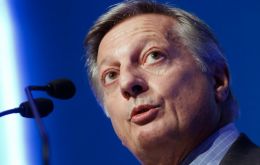
Almost 100 million pesos (approx US$ 7.3 million) are held in offshore accounts by officials from the current Argentine administration economic Cabinet, a figure higher than the 18 million pesos President Mauricio Macri reported as having in a Bahamas account.
-
Monday, May 16th 2016 - 07:25 UTC
Argentina's economy grows 0.8% during first quarter says Central bank

Argentina's economy grew 0.8% on the first quarter of the year compared to the same period last year, Central Bank Governor Federico Sturzenegger said, declaring that since President Mauricio Macri took office employment has remained “stable.”
